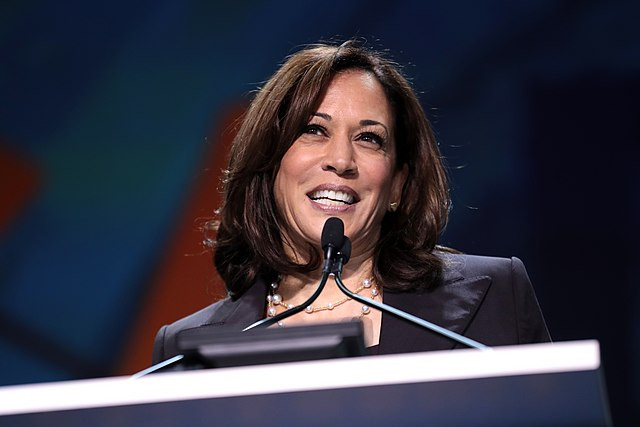Vice President Kamala Harris is set to announce a series of new proposals aimed at bolstering U.S. manufacturing and strengthening the middle class during a speech at the Economic Club of Pittsburgh on Wednesday. The initiatives are part of a broader effort to present Harris as a pragmatic partner to the business community, distancing herself from ideological labels and emphasizing her commitment to economic growth.
According to a senior campaign official, who spoke on condition of anonymity, Harris's address will outline a "pragmatic" economic philosophy rooted in capitalism and innovation, coupled with an understanding of the government's limitations. "She's not bound by ideology," the official said, highlighting Harris's openness to the private sector as a means to expand the middle class.
The vice president's speech is also designed to directly counter attacks from her Republican opponent, former President Donald Trump, who has labeled her as the "Democrats' radical left candidate" and a threat to the U.S. economy. "If Kamala Harris gets four more years, she will deindustrialize the United States and destroy our country," Mr. Trump said at an event in Savannah, Georgia, on Tuesday, where he unveiled his own manufacturing proposals.
In his Georgia speech, Mr. Trump outlined plans to expand tax credits for research and development expenses, appoint a specialized "manufacturing ambassador," and impose stringent tariffs on imports to incentivize domestic production.
In response, Ms. Harris plans to emphasize her middle-class upbringing and extensive political experience, including her two terms as California Attorney General. During her tenure, she collaborated with companies to address privacy concerns related to early mobile applications. As vice president, she has worked to deliver more capital to community banks and small businesses.
"She has spent her career as a public servant working in partnership with the private sector and entrepreneurs," the senior campaign official noted. Harris aims to showcase her efforts to advance racial equity by supporting small and minority-owned businesses through both public and private sector initiatives.
The vice president's economic vision revolves around what she calls an "Opportunity Economy," built on three key pillars: lowering costs, investing in American innovation and entrepreneurship, and leading the world in future industries. Her policy proposals include a $25,000 tax credit for first-time homebuyers, banning price gouging on food and groceries, expanding tax breaks for small businesses, lowering healthcare costs, and increasing taxes on long-term capital gains for wealthy Americans.
Over 400 economists and policy experts endorsed Ms. Harris in an open letter on Tuesday, stating that she "worked on behalf of American families to lower costs, cut taxes, raise wages, and promote worker organizing." They cautioned that "Trump's proposed policies risk reigniting inflation" and threaten the "global standing and domestic economic stability" of the U.S.
Ms. Harris's campaign believes that her Pittsburgh speech could help define her as a champion of the middle class, in contrast to Mr. Trump, whom they portray as favoring billionaires. Polls indicate that Ms. Harris is gaining ground on economic issues. A Financial Times-Michigan Ross poll of 1,002 registered voters conducted after the first presidential debate showed Ms. Harris with a slim two-percentage-point lead over Mr. Trump on the economy.
"She's catching up to her Republican opponent," the senior campaign official said, noting that several other polls show her narrowing Mr. Trump's advantage on economic matters.
In recent weeks, Ms. Harris has softened her rhetoric toward corporate America. While she has previously accused some corporations of "price gouging," she has clarified that only a few engage in such practices. "Some corporations, and it's very few of them that do this, but they jack up prices to make it more difficult for desperate people to just get by," she said in a speech to the Congressional Hispanic Caucus Institute last Wednesday.
The Pittsburgh address is expected to reflect this tone shift, focusing less on corporate criticism and more on industrial policy goals. However, the campaign official emphasized that Ms. Harris remains "unafraid to hold bad actors accountable if she needs to."
With just over a month until Election Day and early voting already underway in several states, the Harris campaign views the speech as an opportunity to continue challenging Mr. Trump's standing with voters on economic issues. By highlighting her pragmatic approach and commitment to the middle class, Ms. Harris aims to appeal to voters seeking stable and inclusive economic growth.






